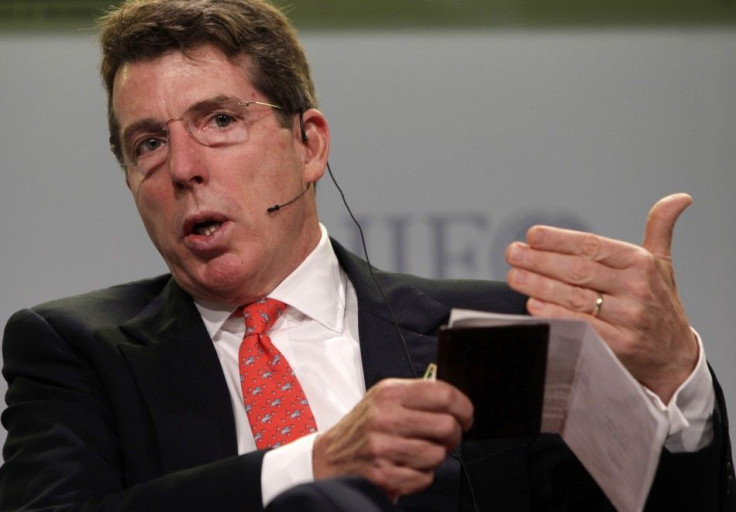Libor Scandal: Barclays Boss Diamond Gives Up $31M Bonus

Ex-Barclays [NYSE:BCS] boss Bob Diamond has given up his £20 million ($31 million) bonus in the wake of the bank's involvement in the Libor rate-fixing scandal.
Diamond, who will still receive his salary and benefits worth in excess of £2 million, gave up the bonus payment voluntarily, according to Barclays Executive Chairman Marcus Agius, the BBC reported.
Agius made the announcement during a British parliamentary committee hearing Tuesday, as MPs pressed the outgoing chairman about the Libor scandal and a Financial Services Authority investigation into the bank.
Bob Diamond has voluntarily decided to forgo any deferred consideration and deferred bonuses to which he otherwise would have been entitled to, Agius, 65, told the panel.
Barclays confirmed the payoff arrangement in a separate statement that quoted Diamond as saying he hoped his decision would help the bank move on.
The wrongful actions of a relative few should not detract from the outstanding work that Barclays employees carry out each day on behalf of clients and customers around the world, he said.
In its review, the FSA said Barclays was aggressive in its practices and misleading on bank stress tests.
When asked if he had warned newly appointed CEO Diamond about the FSA's conclusions, Agius said he had. Last week, Diamond told the committee he had not been warned about the FSA report.
The Libor, the London interbank offered rate, is the benchmark interest rate that underpins trillions of loans, credit cards, mortgages and derivatives around the world. Euribor is the Euro interbank offered rate.
Barclays is among more than a dozen global banks under investigation by authorities in North America, Europe and Japan and the only one so far to admit wrongdoing.
Barclays says a group of its traders tried to manipulate the Libor for profit as far back as 2005 and says it wrongly lowered estimates of the interest it paid other banks at the height of the crisis in 2008 to make its financial position appear better.
Regulators in Europe and the U.S. are said to be investigating up to 15 banks involved in the rate-rigging scandal.
The European Union says it will propose new rules to criminalize the manipulation of indexes such as the Libor.
Besides potentially huge fines from authorities, banks face a raft of civil lawsuits from investors and other financial firms that could end up costing the industry tens of billions of dollars.
Investigators on both sides of the Atlantic are now focusing their attention on financial regulators who failed to halt the rigging.
In testimony on Monday, Bank of England Deputy Governor Paul Tucker denied suggestions there had been pressure from officials or ministers in the rigging of the Libor, saying he was not aware of moves to rig the rate at the time.
Suggestions that senior British officials may have known about or even condoned the 2008 manipulation have turned the case into a political storm, with British Prime Minister David Cameron ordering the parliamentary inquiry to quell public outrage.
Agius stepped down on July 2 but remains at the bank to appoint a successor, while Diamond resigned the following day, after bowing down to pressure to exit the investment bank in the aftermath of the scandal, which cost Barclays a record £290 million in settlement fees with U.S. and UK regulators.
© Copyright IBTimes 2024. All rights reserved.




















